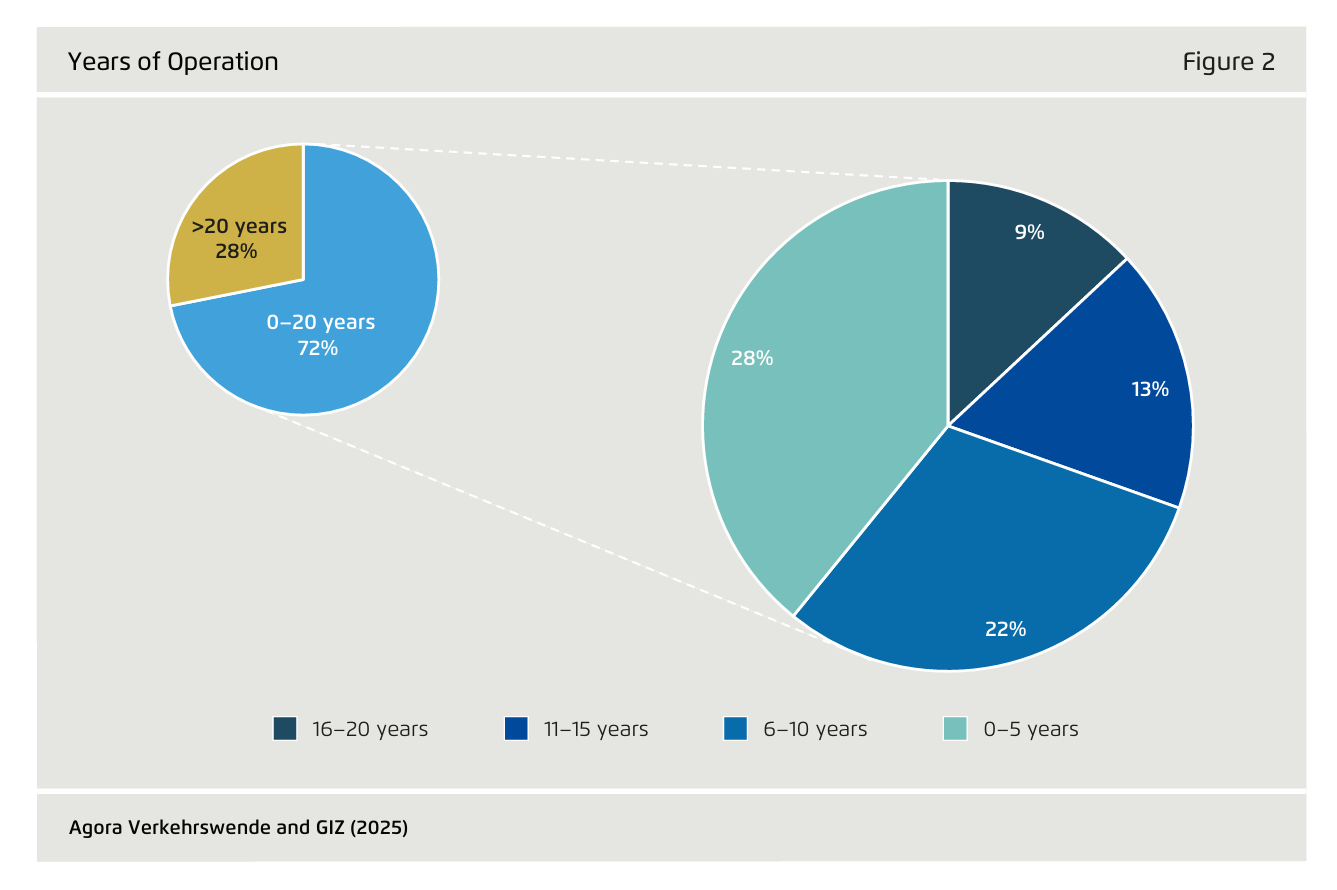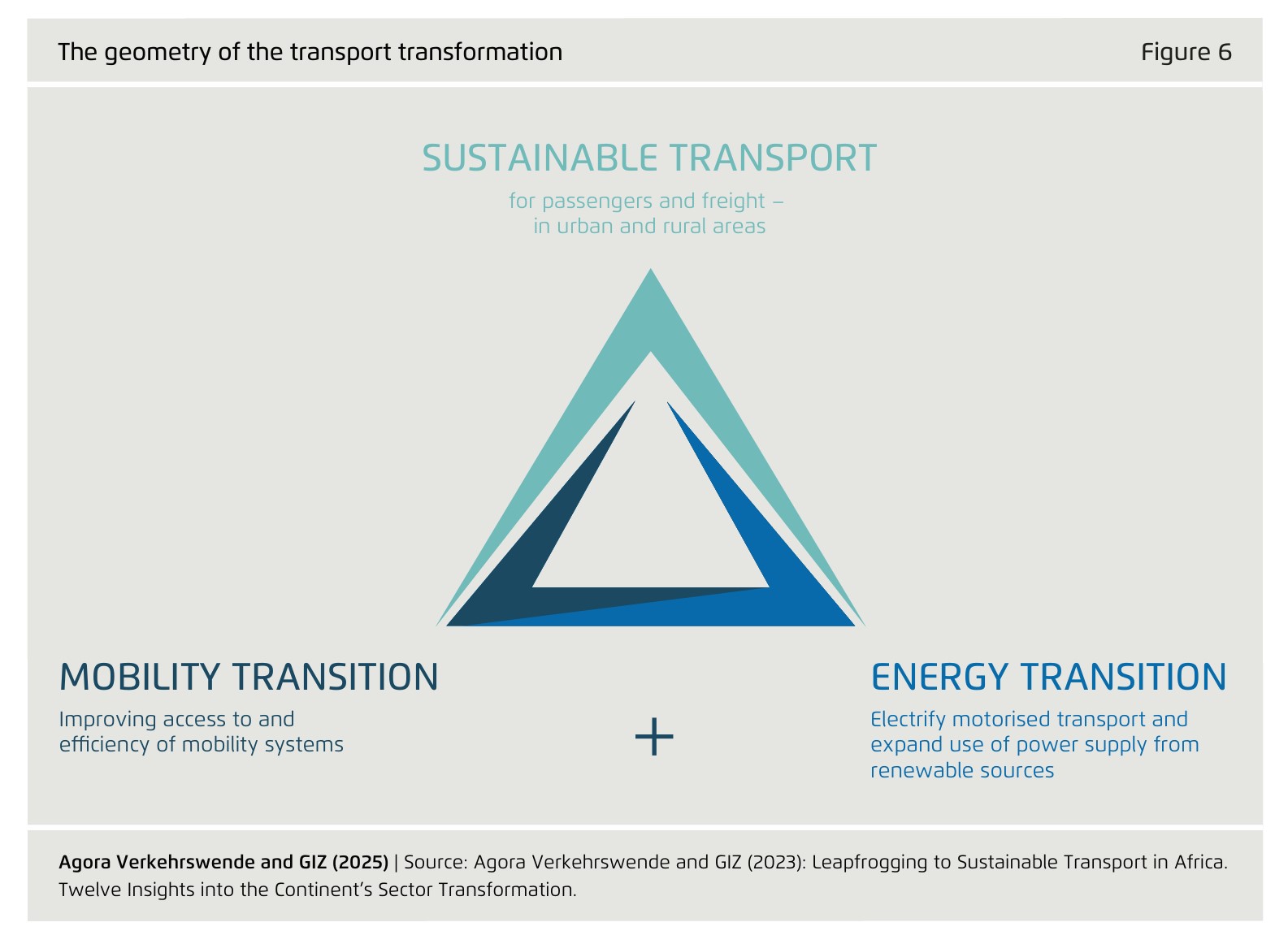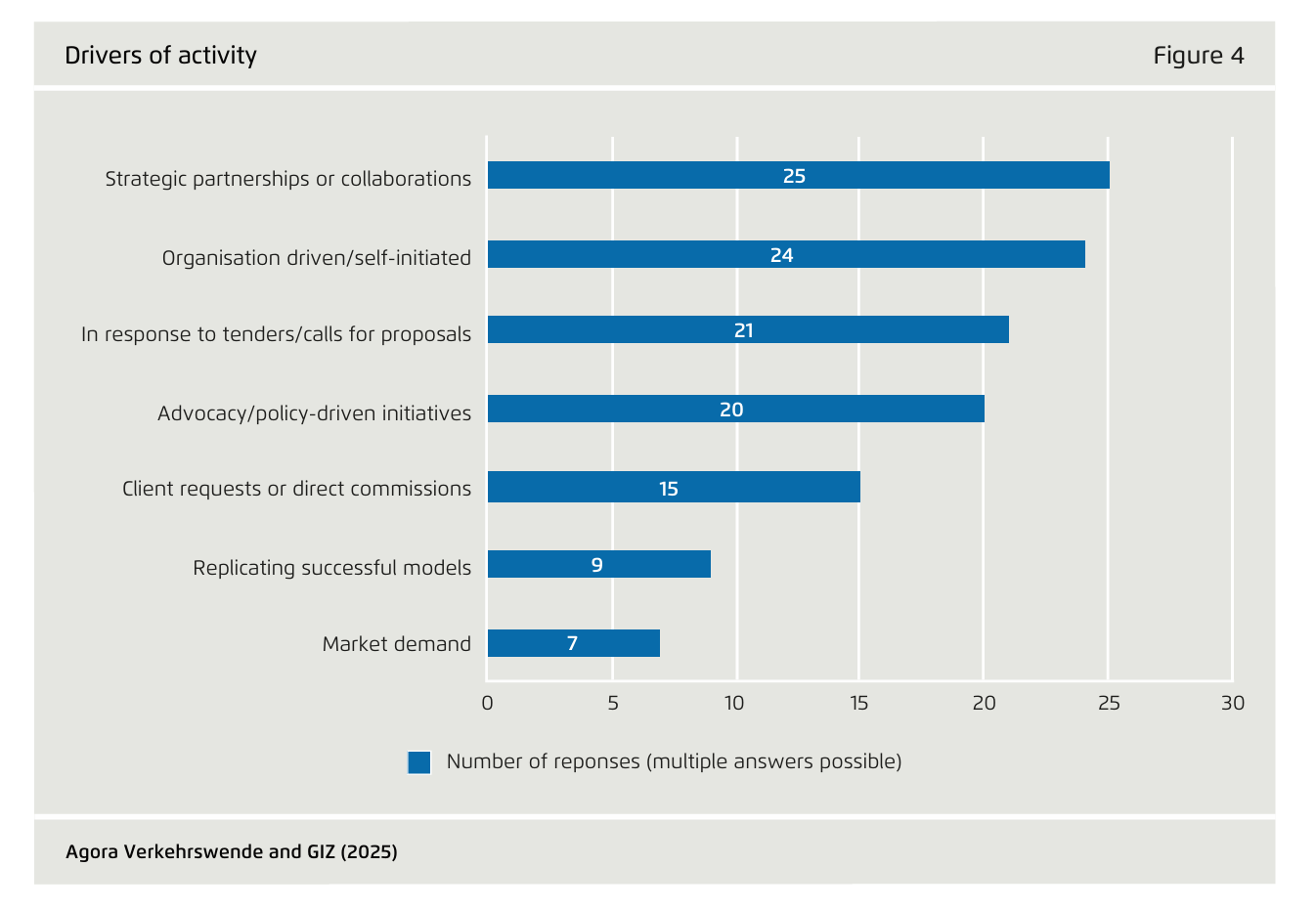Joining Knowledge forces for Sustainable Transport policies in Africa
–
14/10/2025
Themes
Country
Client
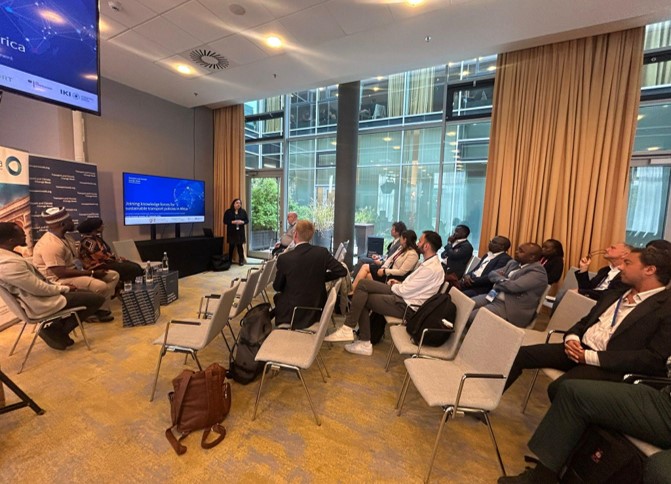
This report presents the a systematic mapping and analysis of African think tanks and research organisations working on sustainable transport. It aims to understand the current ecosystem, capacities, challenges, and collaboration potential of these organisations, ultimately to inform the creation of a permanent African Sustainable Transport Network.
The project was jointly conducted by Agora Verkehrswende and Transport for Cairo (TfC) as part of the Rethinking Transport project, implemented by Agora Verkehrswende and the Deutsche Gesellschaft für Internationale Zusammenarbeit (GIZ). This first edition of the report is intended as a starting point for connecting organisations and is a living document.
The report acts as both a diagnostic and a call to action. It highlights that Africa’s sustainable transport community is vibrant but fragmented, knowledgeable but underfunded, and ready to collaborate if given the right institutional and financial support.
The findings pave the way for:
Creating a regional knowledge network
Supporting African-led research
Integrating transport into broader climate and development agendas
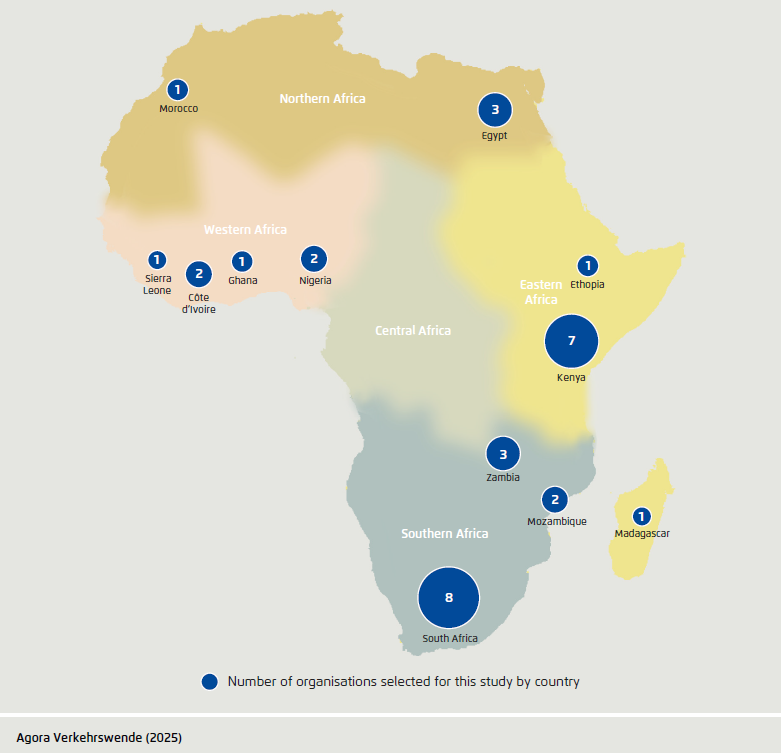
African regions covered
organisations featured in the
report
countries covered within the African region
Key takeaways
